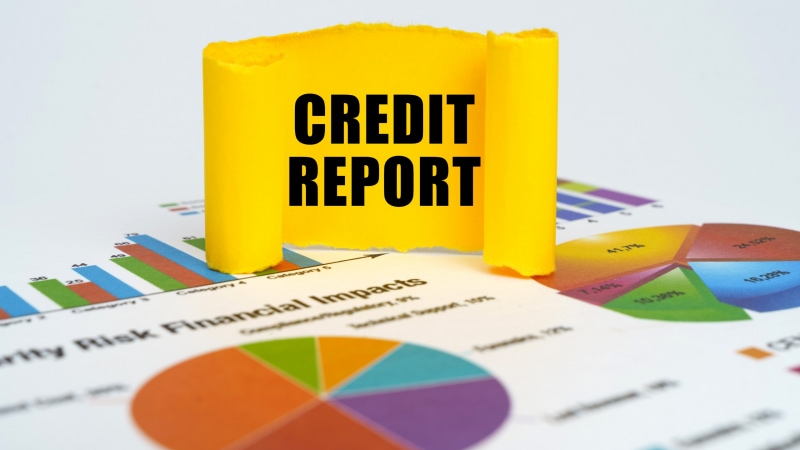How long do collections stay on your credit report?

You've just received your latest credit report and as you review the information you notice an item that has a negative impact on credit score—collections.
A collection is a type of derogatory remark that can last up to 7 years or more on your credit report. You can learn more about derogatory remarks and collections when you enroll in Chase Credit Journey® and learn how these can impact your credit score.
When your debt goes into collections status, this type of activity is specific to credit reporting, meaning that the original creditor sent the debt to a third-party collections agency to try and collect that debt from you. Collections activity could also be done by the original creditor while the account is delinquent.
To clarify, a third-party debt collector refers to a collection agency that collects the debt from you, while the original company that you owe debt to is known as a creditor. A debt collector is the person who contacts you to try and collect the money you owe to the creditor. When your debt goes into collections, it means that the original creditor sent the debt to a third-party collections agency to try and collect that debt from you. A debt collector may contact you if you have outstanding balances and have fallen behind on your payments. Unless there is a grace period, collections can start as early as 30+ days past due.
In this article, we will discuss:
- How different types of debt get treated differently
- Medical debt
- How credit scores tie into collections accounts
- How to improve your credit score after collections
- How long collections remain on your credit report
Are different types of debt treated differently?
There are many types of debt—from "good debt" (like loans for a mortgage/car) to "bad debt" (like interest accrued on missed credit card payments). When a collection happens, it means that you have failed to make payments towards your debt even after there have been good faith efforts to notify you of your obligations.
Delinquent accounts may be reported as late to the credit bureaus in as little as 30 days past due. From there, you could be contacted (if not already) by a debt collector or collections agency.
A debt collection can appear on your report in the following contexts:
- Medical debt
- Auto loan debt
- Personal loan debt
- Credit card debt
- Student loan debt
These can appear on your credit report as a derogatory mark and last up to 7 years. Some derogatory marks, such as bankruptcy, can last for 10 years. However, not all debt is treated the same. There are some crucial differences when it comes to medical debt that are designed to protect consumers. If you have any questions about the specifics of your report, you may want to seek advice from counsel.
Medical debt
While collections can still take place on medical debt that has not been paid, paid medical debt does not appear on credit reports. The major nationwide consumer reporting agencies (NCRAs) voluntarily removed medical debt less than $500 starting on March 30, 2023. They will no longer include medical debt that has been paid in full after being sent to collections, and they cannot be reported until they are 365 days past the date of first delinquency.
Keep in mind that debt, including medical debt, may significantly hurt your credit score even if it's not listed as a derogatory mark on your credit report. Let's address this more below.
How credit scores tie into collections accounts
One important factor that gets calculated into your credit score is payment history (about 40% of your VantageScore® and 35% of your FICO® Score, depending on the specific model used). Payment history is the frequency and consistency of your payments to lenders. So, if you've been regularly missing monthly payments on credit cards or other loans, your credit score may have already been negatively impacted. If your credit score is high, collections may have a greater impact to your score. With a lower score that already has negative items, the impact may not be felt by as many points.
In addition, negative marks also impact your score. When you have collections (or any other derogatory mark, like a charge-off) on your credit report, you'll face another dip in your credit score. It could also be a barrier when it comes to applying for new credit cards or other lending products. Lenders may not want to take on the additional risk of someone undergoing the collections process. You might also have a harder time getting good interest rates on auto loans, mortgages and more.
How to improve your score after collections
It can be scary to see the degree of impact that collections have on your credit report. However, there are a few ways to go about improving your credit score and demonstrate creditworthiness. While it could take up to 60 days for these positive changes to get reflected in your credit score, it could benefit you in the long run.
Below are some steps you can take to help lift your credit score.
Step 1: Make regular payments
Payment history is an important contributing factor in your credit score. Taking immediate steps towards paying off your debts and your regular bills like rent and utilities can help to improve your score over time.
Step 2: Improve your credit utilization ratio
Your credit utilization ratio is the proportion of your credit card balance on all your credit cards relative to the credit limits on all your credit cards. Best practices include paying down debt, reducing monthly spending and paying off credit card balances. When you lower this ratio, you can help improve your credit score.
Step 3: Enroll in Chase Credit Journey
Using this free online tool, you can get your free credit score and a credit report provided by Experian™ and you'll be able to check your score regularly. When you check your score often (such as daily or weekly), your information on Credit Journey® will update as frequently as every 7 days. This can help you see how the changes you make are affecting your score in a timely manner. You'll also have access to resources such as a customized action plan provided by Experian to help educate yourself on ways to raise your score and how to make empowering choices about your finances.
Does paying off your debt remove collections from your credit report?
You may be wondering if regular payments towards your debt or paying off your collections could reduce the length of time collections stay on your report. Unfortunately, even if you've paid off your debts, the collections remark may remain on your credit report for 7 years. When those 7 years are up, your collections will fall off your credit report, but you may still be expected to pay off remaining debts. You may also have the option to call the agencies and have the mark removed from your credit report once the collection is paid off.
By paying off your debt in collections—and given there hasn't been other negative actions taken, such as filing for bankruptcy—you may improve your credit score. With a higher credit score, you may qualify for better rates for loans and mortgages as well as a better chance for approvals for new credit cards.
When you make timely payments and take proactive steps towards improving your financial health, you may protect your credit score. Using tools like Chase Credit Journey can help guide you through the process of reestablishing your credit so that you can be prepared for the opportunities ahead.



